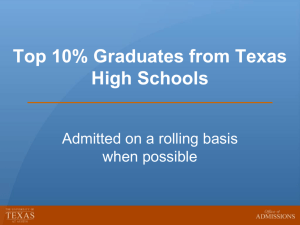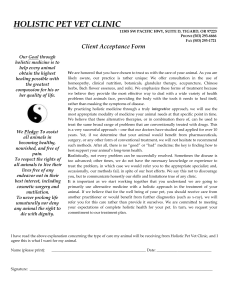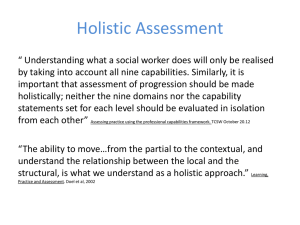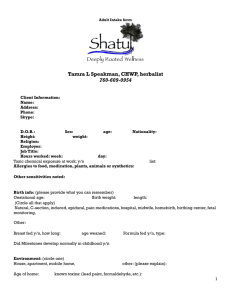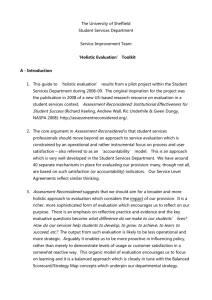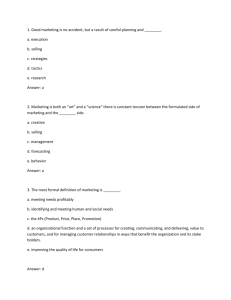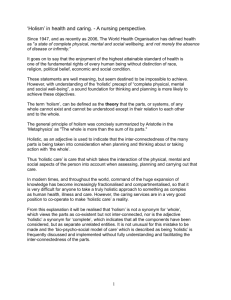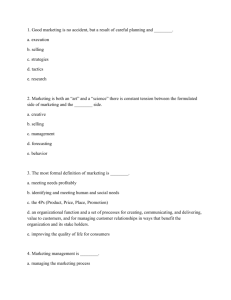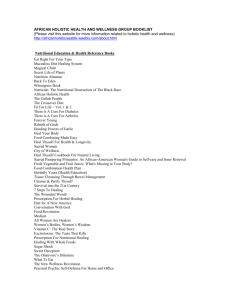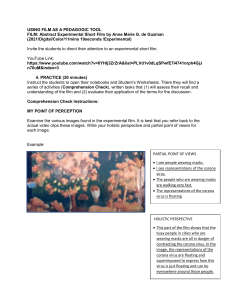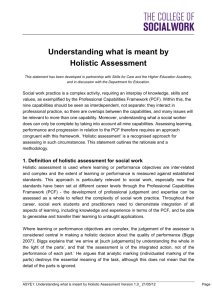DirectorInterview.doc
advertisement
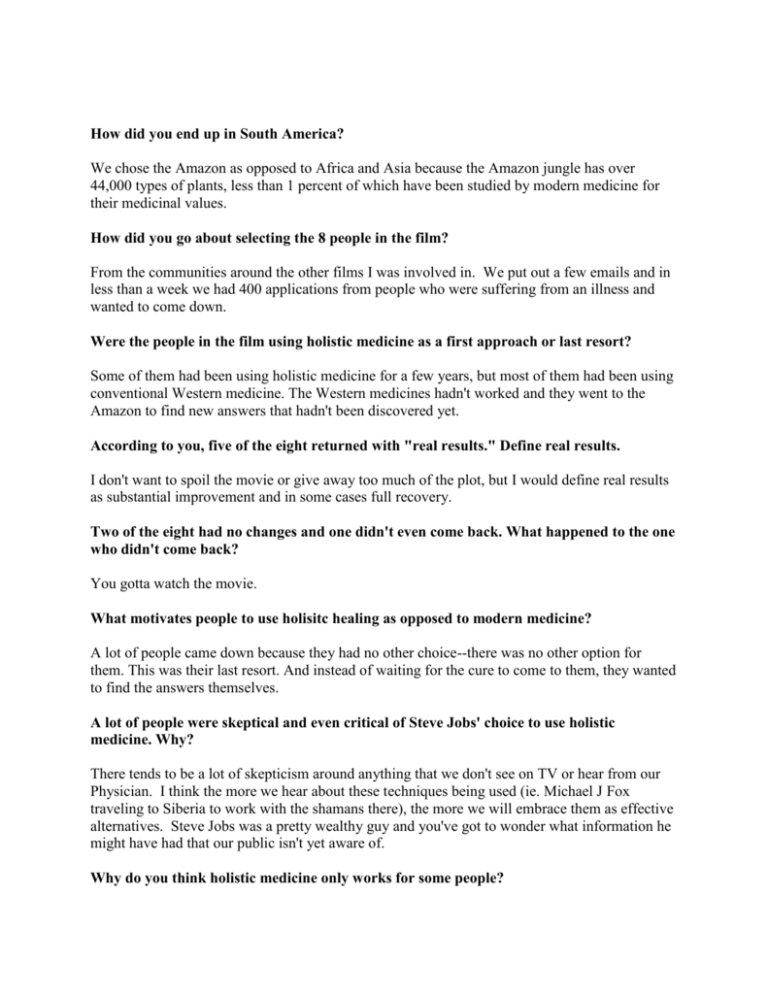
How did you end up in South America? We chose the Amazon as opposed to Africa and Asia because the Amazon jungle has over 44,000 types of plants, less than 1 percent of which have been studied by modern medicine for their medicinal values. How did you go about selecting the 8 people in the film? From the communities around the other films I was involved in. We put out a few emails and in less than a week we had 400 applications from people who were suffering from an illness and wanted to come down. Were the people in the film using holistic medicine as a first approach or last resort? Some of them had been using holistic medicine for a few years, but most of them had been using conventional Western medicine. The Western medicines hadn't worked and they went to the Amazon to find new answers that hadn't been discovered yet. According to you, five of the eight returned with "real results." Define real results. I don't want to spoil the movie or give away too much of the plot, but I would define real results as substantial improvement and in some cases full recovery. Two of the eight had no changes and one didn't even come back. What happened to the one who didn't come back? You gotta watch the movie. What motivates people to use holisitc healing as opposed to modern medicine? A lot of people came down because they had no other choice--there was no other option for them. This was their last resort. And instead of waiting for the cure to come to them, they wanted to find the answers themselves. A lot of people were skeptical and even critical of Steve Jobs' choice to use holistic medicine. Why? There tends to be a lot of skepticism around anything that we don't see on TV or hear from our Physician. I think the more we hear about these techniques being used (ie. Michael J Fox traveling to Siberia to work with the shamans there), the more we will embrace them as effective alternatives. Steve Jobs was a pretty wealthy guy and you've got to wonder what information he might have had that our public isn't yet aware of. Why do you think holistic medicine only works for some people? There are many factors but by definition the term holistic means taking into account mental and social factors, rather than just the physical. That said, some people aren't ready to address the more painful aspects of their life history and personal traumas, which could be the missing piece in their healing process. Do you see a difference in attitude, outlook or personality between people who are healed and people who aren't? Not really. I've seen people who are outwardly skeptical to holistic medicine experience immediate results, while others who are more "granola" sometimes are the most resistant to traditional methods. Life is funny that way. What's the most effective holistic remedy? Prevention. Proper nutrition and exercise. No matter how much medicine you pump into people, it's not going to change the fact that we are a sick culture that needs to look at how we live our lives. Have you seen any medical miracles with holistic treatments? Define miracle. I've seen cancer eliminated, if that's what you mean. How much of the spiritual aspect matters with these treatments? That depends on who you talk to. An botanist might say that the chemistry of these plants matters the most but if you are speaking to an indigenous medicine man, he'll probably tell you that the spiritual, mental, and physical are all the same thing. I tend to side with the medicine men. How much of getting better is psychological and how much is physical? I would say the psychological, physical, mental, and spiritual are all the same thing. Who are the shaman and how qualified are they to heal? The Amazonian shamans are indigenous healers who have performed one or more miracles in their life and have thus been chosen to learn the way of the medicine path. Many in this region say that you don't choose the path, the path chooses you. If you were diagnosed with a brain tumor tomorrow, would you go straight to the jungle? If it was inoperable, I would without a doubt. What's the financial cost for getting treated holistically? It depends. But generally the cost is much more practical than going through conventional western treatments. Would you consider yourself a modern day hippie? No, I'm not. I don't wear tie-dye shirts, listen to Grateful Dead and smoke Marijuana. Well, maybe I listen to Grateful Dead sometimes. But I would consider myself more of a scientistcreative. What was it like being selected for the Mill Valley Film Festival? Great. There's been a real positive response to this film since we started shooting it. When we were accepted into Mill Valley, it was a real honor. What was going through your head moments before the premiere? We sold out both of our premieres. We were kind of in the back, in the upper balconies, watching everyone experience the film and it was a feeling of gratitude for being able to be part of this incredible process. We're all thrilled to be delivering this information in a format that can reach a lot of people. What's your favorite documentary? Tarnation, by Jonathoan Caouette. Who's your favorite documentarian? Jeff Feuerzeig
